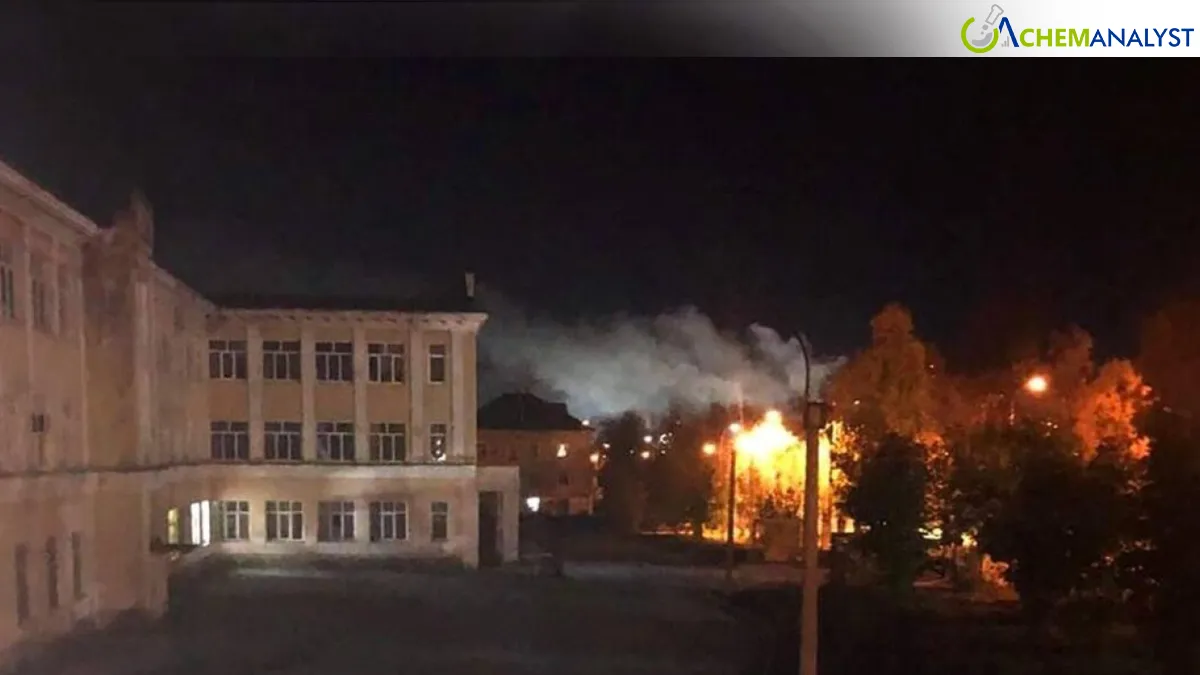Welcome To ChemAnalyst

Ukrainian drones executed a coordinated overnight assault on two critical Russian industrial facilities located over 1,500 kilometers from the border: the Orsknefteorgsintez oil refinery in the Orenburg region and the Azot chemical plant in the Perm region.
In a significant escalation of the conflict, Ukrainian drones struck two major Russian industrial sites on Friday, targeting both the fuel supply and the defense-industrial complex by hitting facilities more than 1,500 kilometers from the Ukrainian border. The simultaneous attacks targeted the Orsknefteorgsintez oil refinery in the Orenburg region and the Azot chemical plant in the Perm region.
The Orsknefteorgsintez refinery, a critical facility owned by tycoon Mikhail Gutseriyev's Safmar Group with an annual processing capacity of 6.6 million tons, was successfully targeted. Videos posted on social media captured a drone crashing within the refinery grounds, followed by a large column of black smoke. Despite the visual evidence, Orenburg regional Governor Yevgeny Solntsev stated there were no casualties and that operations at the facility were not disrupted. The refinery produces approximately 30 types of petroleum products, including gasoline, diesel, and jet fuel.
The second strike targeted the Azot chemical plant in Berezniki, Perm Krai, which is part of billionaire Dmitry Mazepin’s Uralchem holding. Perm Governor Dmitry Makhonin confirmed the attack, noting that the plant, which is Russia’s sole producer of several specialized chemical products, including higher aliphatic amines and crystalline sodium nitrite, experienced a brief interruption in production but has since resumed normal operations.
Residents reported two powerful explosions late on Thursday evening, with eyewitness accounts suggesting three drones were involved. Notably, Azot manufactures ammonium nitrate, a substance widely utilized both as a fertilizer and a key component in explosives. Emergency services established a crisis response center, but no casualties were reported.
These long-range strikes are the latest in a series of calculated attacks by Kyiv against Russia’s economic and military infrastructure. They follow a recent hit on September 25 against the EuroChem-Belorechenskie Mineral Fertilizers plant in Krasnodar Krai, another major chemical producer, which temporarily shut down operations.
The repeated attacks on energy and chemical facilities are having a noticeable strategic impact on the Russian economy. Fuel shortages have been reported across more than 20 regions, forcing the Russian government to ban gasoline exports and prepare for the unprecedented step of accepting imports to stabilize the market.
Located approximately 1,500 kilometers from the Ukrainian border, the successful targeting of both Orsknefteorgsintez and Azot highlights Ukraine's growing capability to project force over vast distances.
We use cookies to deliver the best possible experience on our website. To learn more, visit our Privacy Policy. By continuing to use this site or by closing this box, you consent to our use of cookies. More info.
